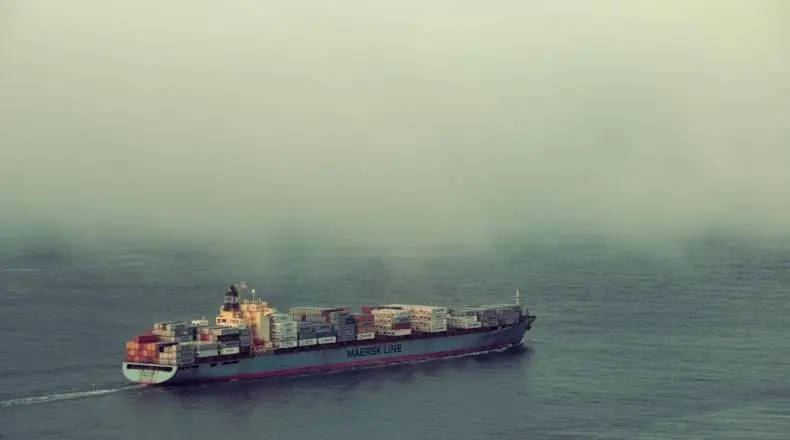Japan Is Trying To Maintain Cover For LNG Vessels In Russian Waters, How Digital Money Could Look Like According To The IMF


The sea route is one of the most popular transport routes, mainly raw materials. The war in Ukraine caused numerous difficulties faced not only by countries dependent on Russia, but also on their transport routes. In addition, it is worth looking at the future of money, which is becoming more and more digital.


The world is constantly changing. The influx of information is so large that it is difficult to distinguish what is fake news and what is real. In addition, the media began to create our ideas about what our ideal life should look like, mainly through influencers who promote a given lifestyle. Our occupants or family also have an influence by telling us what we should and shouldn't do. That's why it's hard not to succumb to their influence, then I try to live up to expectations. Young people who live mainly on social media are particularly vulnerable to this influence.
To deal with this flood of information, expectations or, to put it mildly, tips, you can often consult specialists such as a psychotherapist. In a CNBC article, one such expert offers tips on how to calm down all that excess stimuli. Mainly as many specialists advise to limit media such as Instagram to be able to focus more on your life and not on the created one.
What's more, this skill can help you succeed, because such control skills can be extremely useful when making decisions, whether in private or professional life.
Here's the 'most overlooked' skill young people need to be successful today, says millennial therapist (via @CNBCMakeIt) https://t.co/52S9vsJJ9z
— CNBC (@CNBC) December 30, 2022
The war caused by Russia in Ukraine indirectly affects other economies.
This is also a problem for the transport industry by sea, which is usually used to transport energy resources such as oil or gas.
Japan's Tokio Marine & Nichido Fire Insurance, Sompo Japan Insurance and Mitsui Sumitomo Insurance told shipowners last Friday that from Jan. 1 they would stop offering insurance coverage for ship damage caused by war in Russian waters, because reinsurers were withdrawing coverage.
But to protect itself, a senior official at the industry ministry said on Tuesday that the Japanese government had asked insurers to take additional risks to continue providing war insurance for liquefied natural gas (LNG) shippers.
Thus, it is expected that they will enable the insurance to continue.
Japan insurers to maintain cover for LNG vessels in Russian waters https://t.co/ilmt8PEi36 pic.twitter.com/MXBVZ1MuMn
— Reuters Business (@ReutersBiz) December 30, 2022
More and more often there are information that a given country is launching a pilot program for its digital currency. The popularity of cryptocurrencies as well as non-cash payments will bring us closer to the future of digital money.
Of course, digital money has been developing for some time already. New technologies hope to democratize finance and broaden access to financial products and services. A main goal is to achieve much cheaper, instantaneous domestic and cross-border payments. The gains could be especially great for people in developing countries.
Many consider that the digitization of currencies and money is inevitable. There are doubts as to what it should look like, especially for legal reasons. Is it supposed to resemble decitralized cryptocurrencies or rather controlled by central banks. Both options have advantages and disadvantages. The lack of a specific law gives the possibility of greater privacy but also threatens the growth of financial savings. On the other hand, controlled by central banks, they are regulated and seemingly safe, but they limit the privacy of transactions.
The future of money is undoubtedly digital. The question is: what is it going to look like? In our September issue of F&D, some of the world’s leading experts delved into this complex and politically charged question. https://t.co/DjEnewL79N pic.twitter.com/5UvqhLmIoU
— IMF (@IMFNews) December 30, 2022